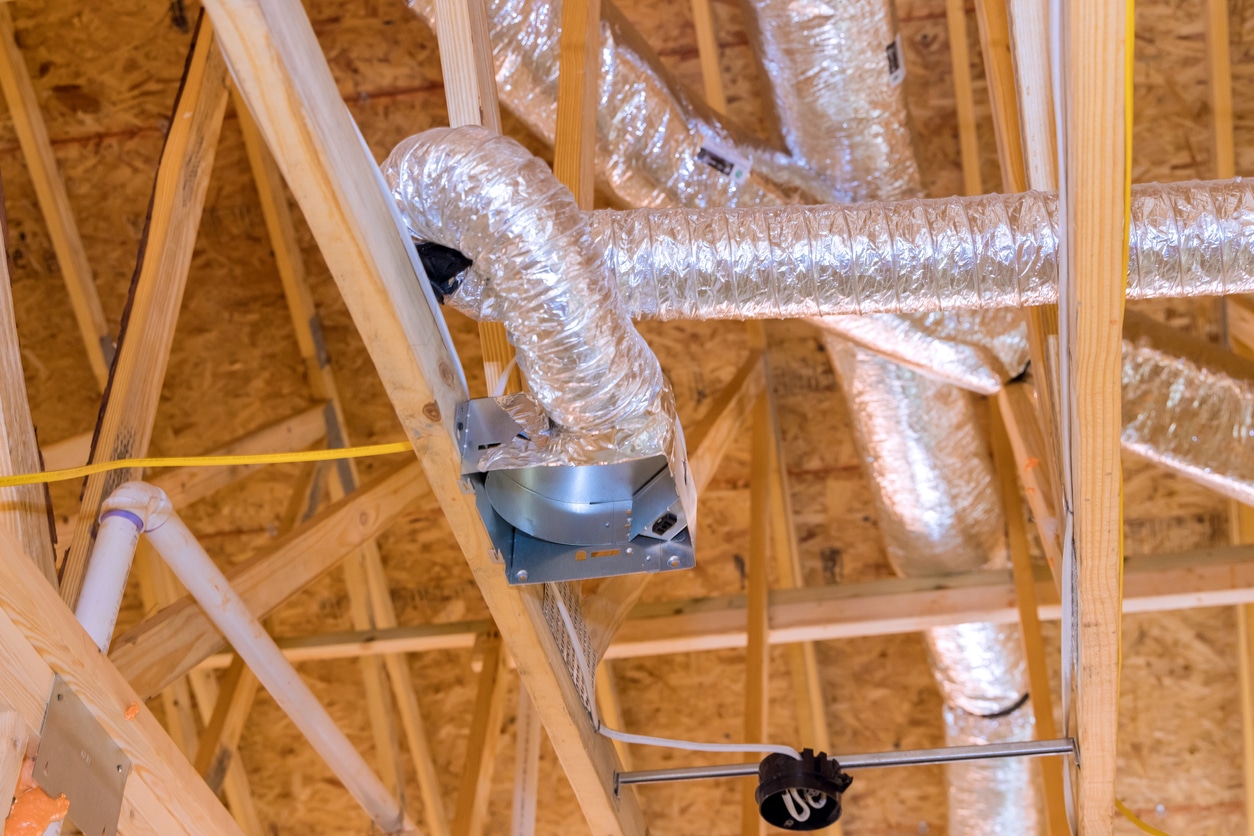
Installing new ductwork in your home is a significant task. The ducts need to be strong, clean, and efficient in order to keep your HVAC system running smoothly. There are a number of factors to consider, but one of the most important is the actual materials used to make them. Here are the most common types of ductwork used today.
- Sheet metal. Sturdy and durable, steel or aluminum ducts don't leak as easily as other types of ductwork, allowing you to maintain good airflow. They do collect dust more easily, but the smooth surface makes it resistant to mold growth. The main drawback is that metal is conductive, causing it to lose heat energy if it's not properly insulated.
- Fiberglass. Fiberglass lining is used on metal ducts to prevent heat loss. This kind of ductwork material can also reduce condensation and help air flow more quietly. It is, however, more susceptible to mold growth. Additionally, it deteriorates over time, causing hazardous fiberglass particles to get into your air. If you use it, it's better to line the outside of your ducts rather than the inside to avoid these problems.
- Fiberboard. A lighter ductwork material, fiberboard is made of fiberglass compressed with resin and lined with foil for insulation. It's cheaper than sheet metal and retains heat well, so it's a good option if you're on a budget. However, it won't last as long. Much like fiberglass, the material will deteriorate over time, shedding hazardous particles into your air. Additionally, the fact that it's less durable means it's more susceptible to air leaks. Plus, the textured surface can attract dirt and other contaminants.
- Flexible ducts. These are great for putting ductwork into tight spaces or other areas where rigid ductwork wouldn't fit as well. Made of coil and plastic, they can be molded to fit anywhere you need it. They're inexpensive, easy to install, and easy to insulate. The drawback is that the flexible material makes them more susceptible to punctures and other air leaks.
For all your heating and cooling needs, contact the professionals at Jackson & Sons. We keep Eastern North Carolina homes comfortable and efficient.